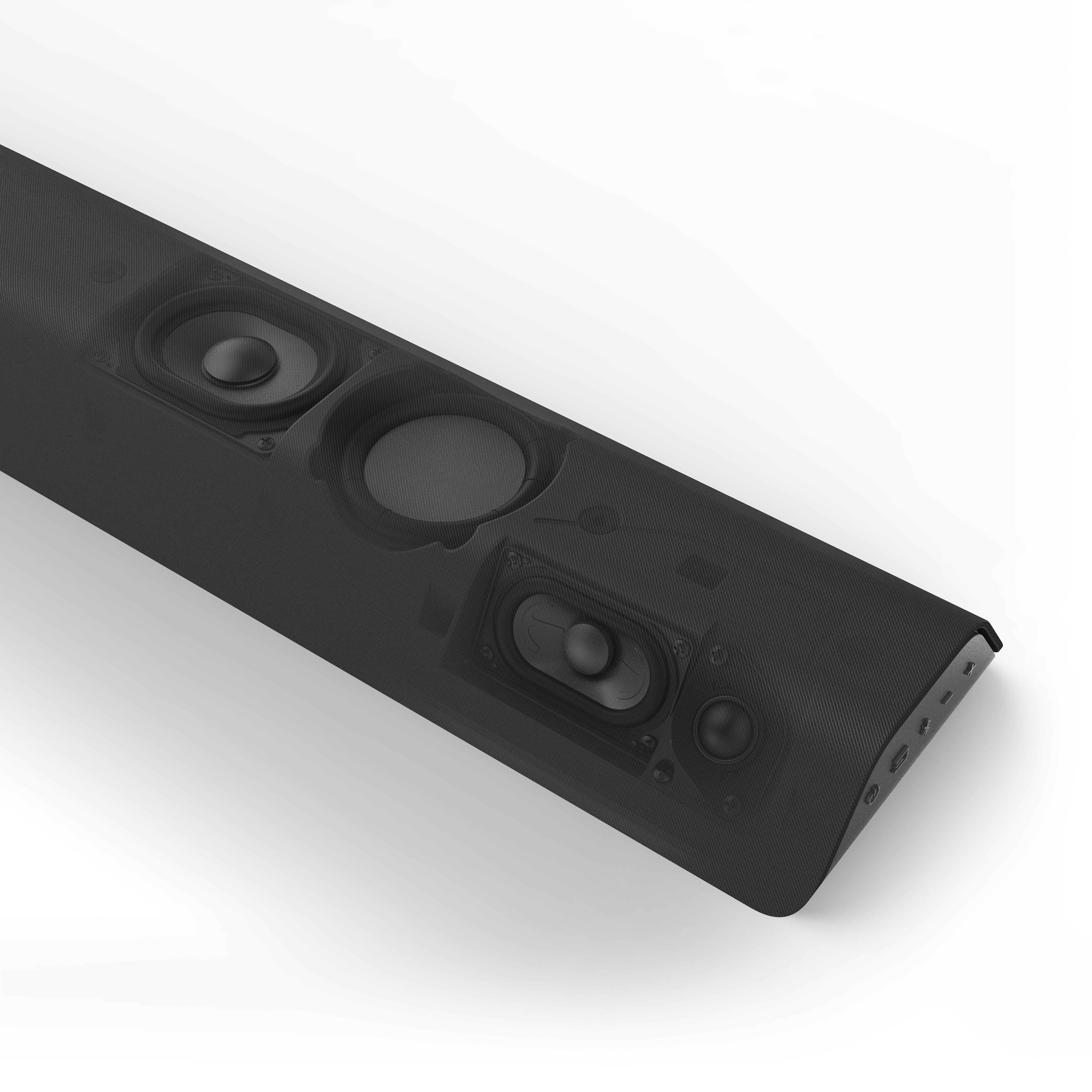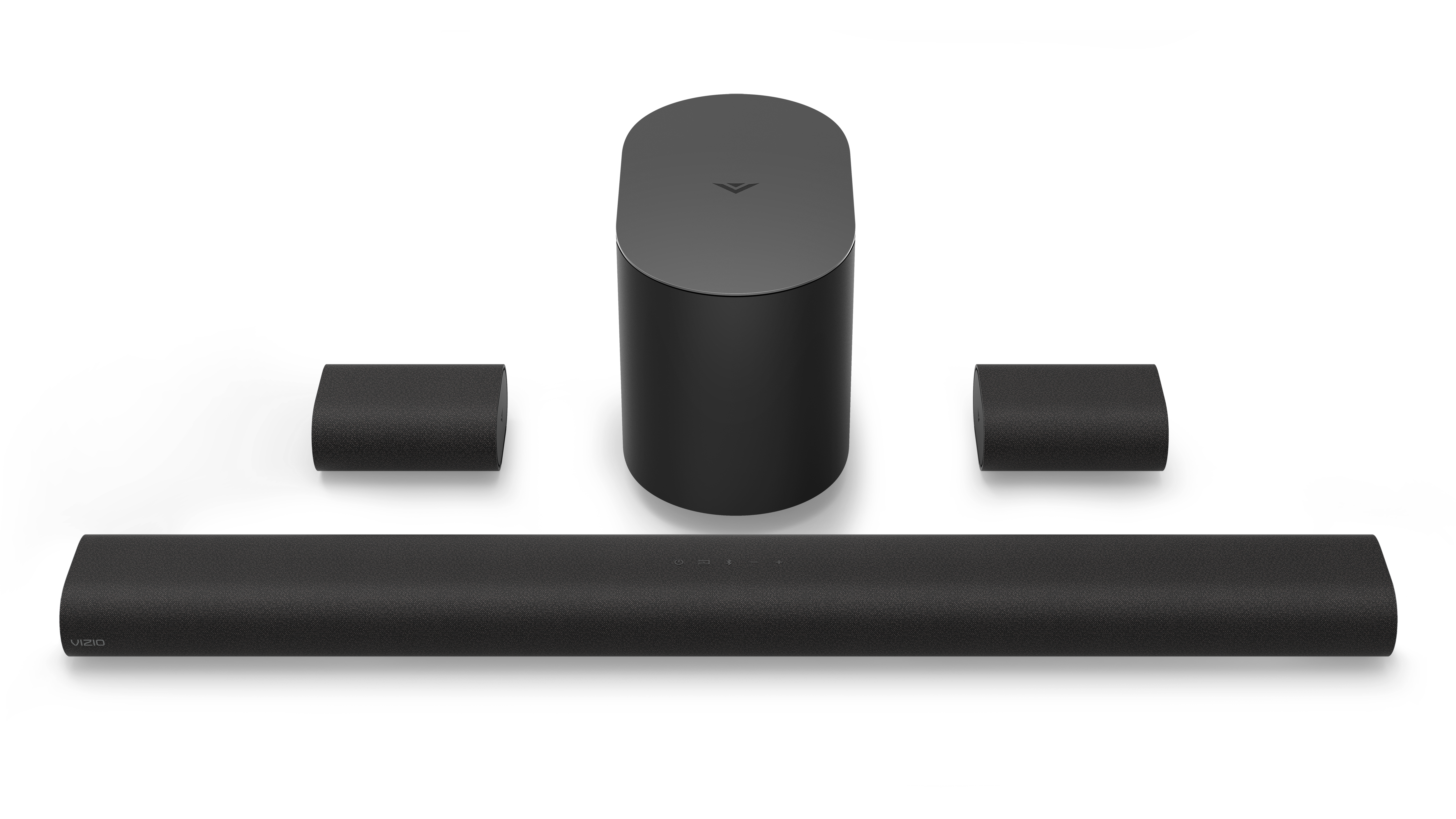Budget TV maker Vizio has announced its new M-Series soundbar lineup for 2022-2023, with the update led by the M-Series Elevate, a less pri...
Budget TV maker Vizio has announced its new M-Series soundbar lineup for 2022-2023, with the update led by the M-Series Elevate, a less pricey version of the original but with the same swiveling Dolby Atmos height speakers.
Like many of the best soundbars, the new $800 M-Series Elevate is a 5.1.2 model, and it comes with wired surround speakers and a wireless subwoofer said to deliver bass down to 45 Hz. Like its predecessor, it has speakers at the bar’s outer edges that automatically rotate up for Atmos and DTS:X duty, and then rotate back down to contribute to enhanced playback of regular surround and stereo sources.
Connections on the M-Series Elevate include HDMI eARC and regular HDMI ports with Dolby Vision HDR pass-through plus an optical digital audio input. When linked to a Vizio TV using HDMI eARC, an integrated sound bar control menu lets you configure the Elevate’s settings on the set’s screen, and there’s also a voice assistant input for connecting a Google or Amazon Alexa speaker.

M-Series All-in-One: Dolby Atmos for $200
Along with the Elevate, Vizio also announced the M-Series All-in-One, a 2.1-channel soundbar offering Dolby Atmos support for just $200.
Atmos and DTS:X sound on the All-In-One are handled via DTS:X Virtual processing, while the soundbar’s front-facing speakers are augmented by a pair of woofers for enhanced bass output. Beyond that, Vizio’s budget soundbar features the same connectivity options as the M-Series Elevate, including a Voice Assistant input.
Both the M-Series Elevate and All-In-One will be available in July.

Analysis: Does the Elevate operate on the same plane as the Sonos Arc?
When TechRadar reviewed the original Vizio Elevate soundbar, we knocked it for a relative lack of features compared to similar flagship soundbars like the $900 Sonos Arc.
While having speakers that automatically rotate upward when a Dolby Atmos input is detected and then automatically retract is an undeniably cool feature, at $1099 when released, the original Elevate seemed pricey, especially for a Vizio product.
At $800, the new M-Series Elevate is a more reasonable ask for that same slick feature, and Vizio’s decision to scale it down from a 5.1.4 Atmos speaker configuration to a 5.1.2 one won’t be a devastating loss for most listeners. The M-Series Elevate certainly is one of the more compelling soundbars on the market, and its support for DTS:X along with Dolby Atmos makes it stand out from many other soundbar options.
When all is said and done, however, the Sonos Arc’s ability to link up over Wi-Fi to other Sonos speakers – including the Sub – and stream audio directly via the company’s app or AirPlay 2 puts it ahead of the M-Series Elevate, which doesn’t provide any wireless streaming options other than Bluetooth. And it also has built-in Amazon Alexa and Google Assistant so you don’t have to connect a separate smart speaker for voice control, along with Trueplay room calibration – another feature category the M-Series Elevate lacks.
Who does the M-Series Elevate make sense for? Mainly movie fans who want to get great home theater sound, but with the added benefit – and bragging rights – of automated Dolby Atmos height speakers. For those who fit that description, Vizio’s new flagship M-Series soundbar will be a compelling option, though at only $100 less than the Sonos Arc, a tough choice to make.
from TechRadar - All the latest technology news https://ift.tt/7sHE831
via IFTTT








COMMENTS